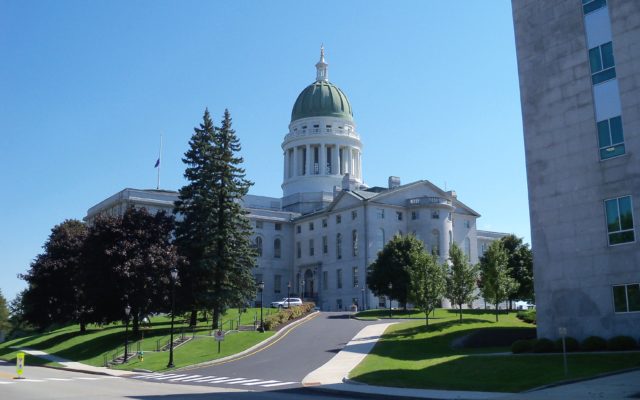
Bipartisan legislators call on Maine consumers to speak up to reduce net energy billing costs
Sen. Nicole Grohoski, D-Ellsworth and Rep. Steven Foster, R-Dexter have joined together to call on Maine consumers to contact their state senators to urge support for the amended version of LD 1347, which will provide meaningful cost savings for consumers by reducing the costs of Maine’s Net Energy Billing program. The two legislators support the bipartisan amendment to LD 1347 offered by Rep. Sophia Warren, D-Scarborough and adopted by the Maine House of Representatives in a bipartisan vote of 92-51 last week. The amended bill is now on the Senate Calendar for consideration when the legislature returns on July 6.
“Today, we are asking that Maine consumers immediately reach out to tell their senators that electricity bills are too high and that they need to vote for LD 1347 to reduce those bills. The amended LD 1347 is the only proposal before the Legislature that is both bipartisan and offers real cost savings from the expected $220 million-dollar annual cost of NEB,” stated Grohoski. “Net energy billing costs are real and will result in higher electric bills starting this July. We can and must accelerate our transition to local, clean energy, but net energy billing is an unnecessarily expensive way to do this and needs to be reformed.”
Foster echoed this call, saying that he believes senators will listen to Maine consumers if they hear from them. “This holiday weekend, most legislators will be in their districts and accessible to the public,” he said, adding that “this is a crucial time for Mainers to stand up for themselves against high energy costs. The Maine Senate can join the House in adopting LD 1347 to bring these excessive costs down.”
Under Maine’s NEB program, utilities are required to buy energy from community solar projects at a premium. Some NEB projects this year cost as much as 25 cents per kWh, compared to equally climate-friendly solar routinely purchased by MPUC for less than 5 cents per kWh. Maine ratepayers pay for this significant price differential in what are called “stranded costs.”
Last week, MPUC approved an annual rate increase of $135 million to Maine ratepayers, which goes into effect July 1, 2023. MPUC’s press release on the rate increase states, “Stranded costs include the impacts of long-term contracts for renewable power as well as the net energy billing programs created by the Legislature to facilitate the transition to renewable power. These programs are primarily made up of residential and community solar projects with above-market costs that are a contributing factor to the rate increases.” The total energy cost burden to Maine ratepayers is expected to be $220 million annually, an estimate that’s been confirmed by Office of Public Advocate, MPUC, utility companies, and Maine energy consumer groups.
Foster added, “What sets the amendment apart from the other NEB legislation still under consideration is that ratepayer advocates like the Maine Public Advocate, American Association of Retired Persons, and small and large business groups like the National Federation of Independent Businesses and the Industrial Energy Consumer Group, all support the amendment to LD 1347. The only organized group opposing this amended bill is the solar lobby, representing the developers, many of whom are financed by large Wall Street firms like Black Rock and others.”
“Only 5 percent of Maine ratepayers are receiving any financial benefits from NEB,” added Grohoski, “while 95 pecent of us are paying the bill – everyone from low-income households to small businesses to Maine’s largest manufacturers. It’s time to adopt fair and equitable reform of this program.”